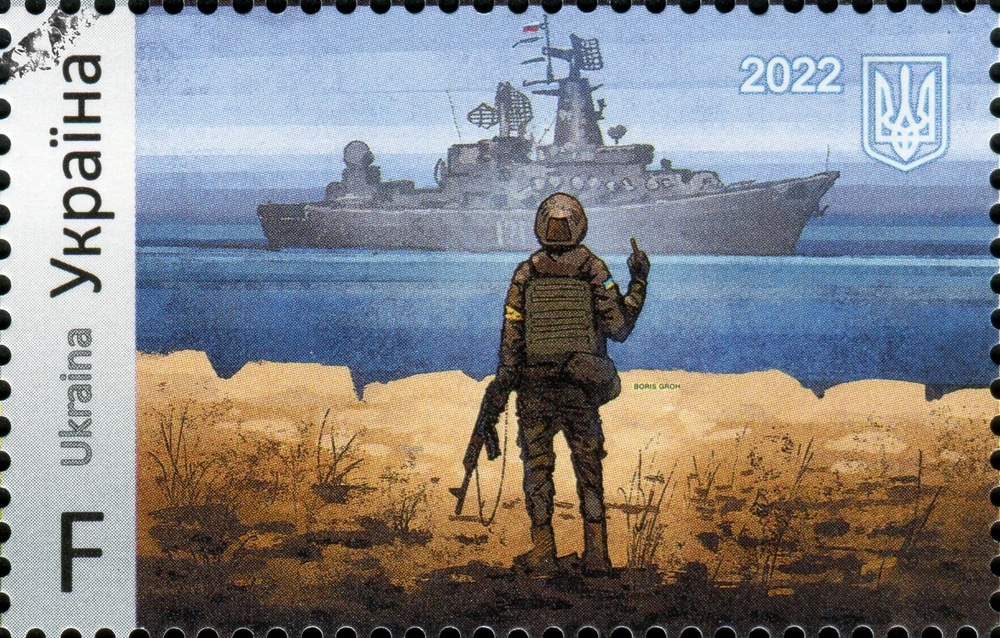You can find the 3rd Edition of Reflections of a Special Forces Officer in Ukraine here
Reflections of a Special Forces Officer in Ukraine Edition 2: Biden’s Babies
“You must be Biden’s Babies,” said the Ukrainian soldiers at the checkpoint just outside of Odessa. All of us paused for a second before laughing. They wanted to know what the heck a group of middled age guys from the Baltics, New Zealand, Canada, and America were all doing here.
We get that question a lot. While that question is interesting, and I will talk about it shortly, I always want to know the motivations and backgrounds of the Ukrainians fighting beyond the obvious as well as see what they really think of the conflict six months in. Their military is really a mix of veterans raised in the chaos of the Soviet era and still wedded to some East Bloc ideas; others from the Maidan Revolution (2014); and soldiers with zero experience who just joined this year.
Ukraine has mandatory conscription but has not instituted a full-scale mobilization. It is a little bit convoluted. I am told that there is a waiting list for Ukrainians to come in the military (allegedly there is a lack of weapons). From seeing the hodgepodge of small arms, they are using, they use whatever they can get. One unit we trained had a mix of M4 assault rifles, AK74s, and Special Operations Forces Combat Assault Rifles (SCARS). I cannot even imagine the logistical conundrum specialists face trying to match the right ammunition, with the right units, and when/where it is needed. As far as military service, if you have certain needed skills such as drone operators, computer specialists, and military veterans, they will take you right away. The “on the spot” conscription I have heard used as a punishment for curfew breakers is a bit misleading. It actually consists of receiving a notice to get a military physical exam to determine eligibility. There is also a pool of individual reservists with some rudimentary training who could be called up. Unfortunately, corruption is ever present. You can pay a doctor to not only declare you unfit for military service, but also to declare you fit even when you are disqualified (a common practice at the beginning of the current conflict).
The Ukrainians in the military (as well as Ukrainian citizens) truly are patriots and believe in their cause. Every one of them talks of eventual victory. They believe what they are doing is just and that if given the right tools, especially long-range weapons and aircraft, they can defeat Russia. You can see the pride in the Ukrainian flags everywhere, patriotic clothes, memes, and songs. A popular stamp meme is the drawing of a Ukrainian soldier giving the bird to a Russian warship. A constant background song is called “Don’t Fuck with Ukraine.” It is actually very catchy. One chant that we hear often is, “Slava Ukraini!” (Glory to Ukraine!), and the response is “Heroyam slava!” (Glory to the heroes!). Before Maidan in 2014, Ukraine was in many ways a country in name only. The capture of Crimea and the war in the East has only solidified a Ukrainian identity in everything from the Ukrainian language now being the dominant language to the schism between the Russian and Ukrainian Orthodox Churches. In many ways, this really is a civil war. Many families have both Ukrainian and Russians mixed in together. Like civil wars everywhere, it has torn families apart.
One Ukrainian officer that I have spent some time with who I will call “D”, is a PhD chemist who had his own successful startup biotech company in Georgia and moved back to Ukraine immediately upon Russia’s nationwide attack in March. “D” is very a matter of fact about why he is here. He says there was no debate and no other option. Even though he had lived in the U.S. for a decade, he is here fighting. His business partner actually returned with him. These are the type of people fighting for Ukraine. D made a choice to give up a comfortable life and put his life on the line.
There can be some societal disconnects though. Many young men will not go out in the cities much because they fear on the spot recruitments. They all know someone fighting in the east. On the other hand, some men will not go out and “party” out of respect for their fellow Ukrainians on the frontlines.
The foreigners who come here to help are an eclectic group too. It seems that most come over for just a month or two and end up staying or leaving then returning. They (we) buy into the cause too. Every one of them that I work with or have spoken to say they believe it is a case of right versus wrong and that this war is about more than just Ukraine and Russia. The men from the Baltics assisting the war effort have lived with the threat of Russia for their entire lives. From their perspective if Russia is not stopped in Ukraine, they will be next. One Polish volunteer said that his family has been fighting the Russians for generations and their imperial aggression will never stop without brute force. Taking a step back from Europe, one can make the case that China is watching how the West reacts to Russian aggression as a litmus test for any moves made against Taiwan. Rumors even abound here that the Chinese are directly supporting the Russians with military assistance. I have not seen any evidence of that, but the threat is definitely there.
Despite the overwhelming support for the war effort, there is a Ukraine-wide epidemic of trauma. Almost every Ukrainian civilian I have spoken to has or is dealing with some sort of extreme anxiety. Problems sleeping, emotion swings, and just plain fear is every present. Many Ukrainians think, on the surface, that the war could be over by the end of the year. If you really talk to them though, they know it could potentially go on for years. The trauma not only affects Ukrainians, but also the foreigners that volunteer to fight. The Ukrainian Legion is full of motivated individuals (the Call of Duty gamers and paintballers left at the beginning of the war), but they have had mixed results. Some of the ones that I have come into contact with suffer from what they called shell shock in World War I. Many were under constant artillery bombardments that makes you feel completely helpless and can drive a man mad.
Fortunately, attacks from Russian aircraft in western Ukraine are rare to non-existent. The Ukrainian airspace is completely devoid of aircraft. It is kind of spooky when you think about it. Living in the 21st century means hearing the roar of jet engines throughout your day, but not here. It does mean that when you do hear something in the air, you take notice and hope it is not incoming rockets or a Russian jet on a bomb run. I have not seen or heard one aircraft since I have been here besides a Russian drone that was quickly shot down.
Overall, the Ukrainian people are sick of the war and the constant air raids. Their nerves are frazzled, but they press on and I have not heard one person show any signs of disagreement with the cause. I am not naïve though, I am over here as part of the war effort, so people know my opinion and also there are plenty of areas in the east who are pro-Russian, I am just glad that in most of the country, they give full-throated support to the war.
Finally, you hear a lot about what the Ukrainian military equipment needs; mostly big-ticket items like HIMARS, artillery, and aircraft. What is rarely discussed is what the soldiers need at the battalion level and below which are: night vision goggles (NVGs), small arms ammunition (5.56, 5.45 x 39, 7.62 x 39, 7.62 x 54R), 60/81/82mm mortars (plus ammo), weapons optics (red dots, ACOG scopes, thermal sites, night vision sites), electronic hearing protection, binoculars, secure handheld radios, satellite phones, flashlights (weapons mounted, handheld, and headlamps all with a red lens capability) winter clothing (polypropylene undergarments, watch caps, thin gloves and heavy gloves) and boots for the upcoming winter. One commander told me today that he needed two things, more ammunition and more training. They are hungry for it. This list is not all inclusive and I will continue to refine it as time progresses. PS-I finally found some oatmeal (reference from last week’s article) as well as a jar of beans I have no idea how to properly open!
Authored by Francis Marion.
You can find the 3rd Edition of Reflections of a Special Forces Officer in Ukraine here
You can find the 1st Edition of Reflections of a Special Forces Officer in Ukraine here









